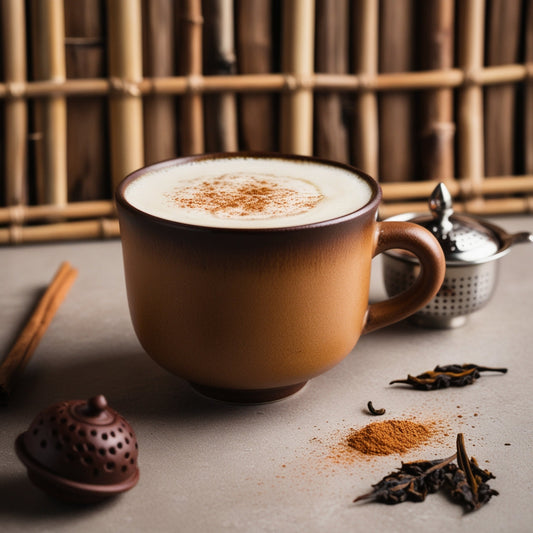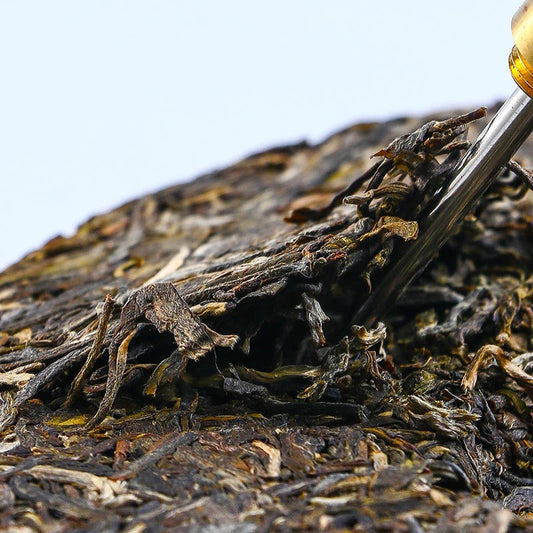Overview
Are you having doubts that if Green Tea and Matcha are the same?
Well they are not same. But they are same in some aspects. For example the benefits both gives are kind of similar because both have the same components. However, this article guides you through the benefits, side effects, what could be the differences both have and at last you get to know Green Tea or Matcha which one could be better.
Table of contents
- Introduction
- Green Tea
- Matcha
- Benefits of Green Tea
- Benefits of Matcha
- Side effects of Green Tea
- Side effects of Matcha
- Difference between Green Tea and Matcha
- Conclusion
Introduction
Green tea and matcha are two popular beverages with a shared origin in the Camellia sinensis plant. They are often compared due to their similar roots and health benefits. However, they are not the same, and understanding their differences can help you make an informed choice about which is better for you.
Green Tea
Green tea is made from the leaves of the Camellia Sinensis plant, which are minimally processed to preserve their natural antioxidants and nutrients. The leaves are either steamed or pan-fired shortly after picking to halt oxidation. This process helps maintain the green color and delicate flavor. The resulting tea is typically lighter in color and flavor compared to other types of tea.
Processing of Green Tea
The processing of green tea involves several steps. After harvesting, producers quickly steam or pan-fire the leaves to stop oxidation. Then, they roll or shape the leaves to break down the cell walls and release essential oils and enzymes. The final step is drying, which helps preserve the tea and prevent spoilage.
This minimal processing helps retain the natural compounds found in green tea, such as catechins, which are a type of antioxidant. The tea is then brewed by steeping the leaves in hot water, resulting in a light, fresh flavor.
Flavor Profile
This tea has a delicate, vegetal flavor that can vary depending on the specific variety and processing method. The flavor is generally subtle, making it a popular choice for those who prefer a milder tea experience.
Types of Green Tea
There are several varieties exist, each with its unique flavor and characteristics. Some well-known types include:
- Sencha: This is the most commonly consumed one in Japan. It has a grassy, slightly sweet flavor and is usually enjoyed hot or cold.
- Dragon Well: A famous Chinese green tea which has a slightly sweet flavor. It is pan-fired and has a distinct flat appearance.
- Gyokuro: A high-quality Japanese green tea that is grown in the shade, resulting in a sweet, rich flavor and a deep green color.

Matcha
Matcha is a powdered form of green tea made from specially grown tea leaves. Unlike traditional ones, matcha involves consuming the entire tea leaf, which is ground into a fine powder. This method of preparation provides a more concentrated source of nutrients and antioxidants.
Processing of Matcha
The production of matcha involves several distinct steps. First, the tea plants are shaded for several weeks before harvest to increase their chlorophyll content and enhance the flavor. The leaves are then steamed, dried, and ground into a fine powder using traditional stone mills. The result is a vibrant green powder that is whisked into hot water to make a frothy, flavorful tea.
Flavor Profile
Matcha has a rich, creamy flavor with a slightly sweet and vegetal taste. The powder dissolves into the water, creating a thick, frothy beverage with a distinctive green color. The flavor is more intense and robust compared to traditional green tea, which some people find more satisfying.
Benefits of Green Tea
Green tea has been studied extensively for its potential health benefits. Some of the key advantages include:
1. Rich in Antioxidants:
It is rich in antioxidants, particularly catechins like epigallocatechin gallate (EGCG). These compounds help fight oxidative stress and reduce inflammation, which can contribute to overall health.
2. Supports Weight Management:
The combination of caffeine and catechins can help boost metabolism and increase fat oxidation. Regular consumption of green tea may aid in weight management and support healthy body composition.
3. Improves Cognitive Function:
This tea contains caffeine and L-theanine, which can enhance brain function. The caffeine provides a mild stimulant effect. Studies show that L-theanine promotes relaxation and improved focus.
4. Promotes Heart Health:
It may help improve cardiovascular health by lowering LDL cholesterol levels, reducing blood pressure, and improving blood vessel function. These effects contribute to a lower risk of heart disease.
5. Enhances Immune Function:
The antioxidants and polyphenols can support the immune system, helping the body fight off infections and illnesses.
Benefits of Matcha
Matcha offers several benefits, some of which are more pronounced due to its concentrated nature:
1. Higher Antioxidant Content:
Because matcha involves consuming the whole tea leaf, it provides a more potent source of antioxidants compared to traditional green tea. The high levels of EGCG and other catechins contribute to its strong anti-inflammatory and anti-cancer properties.
2. Sustained Energy:
Matcha has a higher caffeine content than green tea, providing a more sustained energy boost. The combination of caffeine and L-theanine creates a balanced state of alertness and calm, making matcha a good choice for maintaining focus and productivity.
3. Supports Metabolism:
Matcha can enhance metabolic rate and fat oxidation more effectively than green tea. This makes it a popular choice for those looking to support their weight management efforts.
4. Detoxification:
The high levels of chlorophyll in matcha contribute to its detoxifying properties. Chlorophyll helps eliminate toxins from the body and supports overall health and vitality.
5. Improves Mood and Relaxation:
The L-theanine in matcha promotes relaxation and can help reduce stress and anxiety. This effect, combined with the sustained energy from caffeine, makes matcha a good choice for a balanced mood and enhanced well-being.
Side Effects of Green Tea
While green tea is generally considered safe for most people, it can have some side effects:
1. Stomach Irritation:
Drinking it on an empty stomach may cause nausea or stomach discomfort. It is advisable to consume green tea with food or after a meal to minimize potential issues.
2. Sleep Disruption:
Although it contains less caffeine than coffee or black tea, it can still affect sleep if consumed too late in the day. To avoid sleep disturbances, it is best to drink green tea earlier in the day.
3. Iron Absorption:
It can restrain the absorption of non-heme iron from plant-based foods. This may be a concern for individuals with iron deficiency or those following a plant-based diet.
Side Effects of Matcha
Matcha, due to its concentrated nature, can also have some side effects:
1. High Caffeine Content:
Matcha contains more caffeine than traditional green tea, which can lead to jitteriness, anxiety, or insomnia if consumed in excess. It is important to enjoy matcha in moderation to avoid these issues.
2. Digestive Discomfort:
Some individuals may experience digestive discomfort or constipation due to the high concentration of matcha. Ensuring adequate hydration and consuming matcha in moderation can help alleviate these symptoms.
3. Potential Contaminants:
Lower-quality matcha may contain contaminants such as heavy metals or pesticides. To reduce this risk, it is crucial to choose high-quality, organic matcha from reputable sources.
Difference between Green Tea and Matcha
Several key differences set green tea and matcha apart:
1. Processing Method:
Green tea is made by steeping the leaves in hot water, while matcha involves consuming powdered leaves whisked into water. This difference in preparation results in matcha being more concentrated in terms of nutrients and antioxidants.
2. Caffeine Levels:
Matcha generally contains more caffeine than green tea. This higher caffeine content provides a more pronounced energy boost and can affect sensitive individuals more significantly.
3. Antioxidant Concentration:
Matcha offers a higher concentration of antioxidants because you consume the entire leaf. Green tea contains antioxidants as well, but in lower concentrations compared to matcha.
4. Flavor and Texture:
Green tea has a lighter, more delicate flavor and a clearer appearance, while matcha has a richer, more robust flavor and a frothy texture due to the powdered form.
Discovering the best green tea and matcha near you would be better for knowing which one can give you most results.

Conclusion
Both of them offer unique benefits and experiences. Green tea provides a lighter, traditional tea experience with moderate caffeine and antioxidant levels. Matcha gives a more concentrated source of nutrients and a more intense flavor profile. Your choice between both will depend on your personal preferences, health goals, and sensitivity to caffeine. Exploring various tea options, including Pu-erh tea, can also add variety to your wellness routine and help you find the best fit for your needs.
Q&A Section
Q1: What is the main difference between green tea and matcha?
A1: It is made by steeping whole leaves, while matcha is a powdered form where you consume the entire leaf. This makes matcha more concentrated in nutrients and antioxidants.
Q2: Does matcha have more caffeine than green tea?
A2: Yes, matcha typically contains more caffeine than green tea due to its powdered form, providing a stronger energy boost.
Q3: Can drinking green tea or matcha cause side effects?
A3: Both can cause side effects green tea might irritate the stomach or affect iron absorption, while matcha can lead to jitteriness or digestive issues if consumed in excess.






